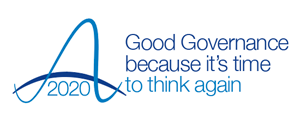Housing association boards
24 June 2020

Although the focus of the impact of COVID-19 has rightly been on health and social care, many other sectors that provide essential services have also been hit hard – none more so than the housing association sector.
The pandemic has forced housing association boards to focus on their own organisational sustainability, but they’ve also needed to look at their partnerships with local authorities and assess the impact of the coronavirus on residents.
During the peak of COVID-19, many non-essential services such as low risk or non-essential maintenance and repair work were suspended and home building discontinued. At the same time, housing associations with a social care function also had to deal with the clinical impact of COVID-19, such as PPE for staff. Both of these have affected housing associations’ financial position – some, but not all, of which has been supported by the government.
However, the most significant impact has been on the bottom line with reduced rent and mortgage payments. With many workers furloughed, tenants and householders have taken the opportunity to suspend these payments in the short term. Although liquidity has been injected in the system to support the banks, less support has been provided for the housing sector. This has forced housing associations to draw on cash reserves.
The continuing response to Grenfell
Housing associations were already under pressure with the need to respond to new fire safety requirements following the Grenfell Tower disaster, often on top of existing maintenance backlogs. This has created a perfect financial storm that is only just easing as repair teams start to get back to work.
Boards need to make sure they have comprehensive scenario planning and risk assessment to understand competing priorities and, importantly, to ensure reputational risk is managed.
The Social Housing White Paper
Many housing associations have already been making changes in preparation for what may be proposed in this long-awaited white paper. In addition to continued focus on building and fire safety, three potential themes which boards need to consider are:
1. Greater transparency of performance data for residents and the general public, which may also be used to evaluate suitability for strategic partnerships with local authorities and other housing providers. One of the hot topics from this theme is the proposal for an NHS-style ‘Friends and Family Test’.
2. New key performance indicators to demonstrate additional compliance with regulatory requirements for governance and viability, which could affect how housing organisations are rated and placed under further scrutiny by the regulator.
3. Increased monitoring of how and whether housing associations are effectively engaging with residents as part of a ‘rebalanced’ relationship. This ranges from involvement as part of co-designing homes, engagement as part of complaint responses and also resident voice on the board and committees as part of good governance. This may also need a rethink about the mode of engagement, recognising that vulnerable and isolated residents may need different avenues to actively participate.
Opportunities for innovation post COVID-19
COVID-19 has also seen some housing associations move quickly to take the initiative by adopting new ways of thinking. Examples of this include:
1. Many housing associations have upped their digital game during COVID-19 as part of improved engagement between providers and residents, also utilising the same tools for residents to keep in contact with loved ones. This is a real innovation, but care needs to be taken to ensure that digital exclusion does not happen, that GDPR is understood and that processes to reduce this risk are well-embedded.
2. Some housing associations have also been more proactive in establishing resident engagement mechanisms beyond traditional complaints or neighbourhood committees, including resident voice on the board. There needs to be a high level of commitment from housing associations in order to make sure this is not – and is not seen as – paying lip service. It needs to be a real investment in ethical, transparent partnerships with residents and housing associations at all levels.
3. A range of housing associations are moving quickly to consider new ways of partnership working, from loose network arrangements through more formal contractual agreements to full mergers. The outcomes from these partnerships have been the ability to pool capital, get a better price for maintenance contracts, improve public engagement and sharing learning across the sector. These relationships critically help to diversify risk, build sustainability at a local and regional level and improve the financial sustainability of the organisations involved.
All of these initiatives require boards to fully understand how they fit in with risk appetite, the relative strategic risks, the impact on residents and also the impact on their reputation.
Questions for boards
These pandemic-related developments all mean that boards need to start asking some important questions, such as:
What are the opportunities COVID-19 has presented that we can take advantage of?
- How do we effectively balance risks and outcomes across finance sustainability, resident engagement, staff satisfaction, quality building and reputation?
- How comprehensive is our scenario planning in the light of so many issues in the external environment, so that we effectively fulfil our important stewardship role?
- What might the impact be on our organisation of the White Paper and do we have the resources ready to respond?
- How can we provide leadership across our sector in terms of high quality, proactive resident engagement?
If you have any questions or comments about this briefing, please call us on 07732 681120 or email advice@good-governance.org.uk.
Ian Brandon
Consultant
SallyAnn Hunting
Consultancy Director

